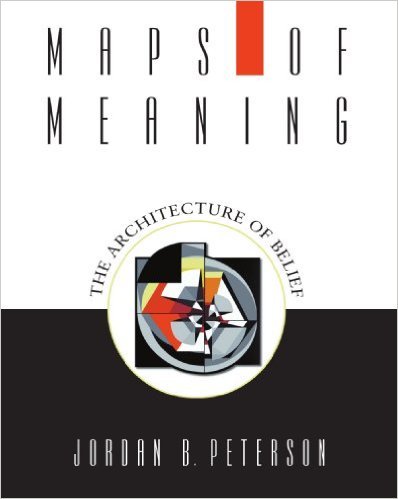The fundamental lesson from Buddha is this: don't let what you are stop you from being what you could be.
And then the question is: what do you identify with? Do you identify with what you are? Or do you identify with the capacity to continually transcend what you are.
That's what humility is like: I'm error ridden so I want to put myself in the situation where I can discover one of my errors, hopefully not in a way that's going to knock me completely out of the game, I want to seek out a challenge, I want to find out where my limits are, I want to find out where there's not enough of me yet.
There's an idea that to be renewed you have to drink the water of life. That's an old mythological idea. What's the water of life? The water is chaos. It's what washes away too much order. To stay continually refreshed by the water of life is to take on exactly the right amount of chaos to make sure that your garden is properly nourished.
Our sense of meaning is actually the marker of that. You use it to calibrate your progress through life. But there is an important rule: you have to aim at the highest possible good that you can conceive. You start by aiming at the star you can see, rather than the dimmer one that you can't yet perceive, and then you decide that you're going to do that.
That's a big decision - in some sense it's a decision of love. You're going to decide that being is worthwhile and that you're going to work for its betterment. And that's a decision based on both love and truth. Having made this decision you're going to play a straight game: you can allow your sense of meaning to calibrate your pathway.
That's no different than saying it's better for there to be being than non-being. Because being is a problem and if you want to have no problems then you need to choose non-being. And you could say: "being is so miserable that maybe that's the route we should take", and that's fair enough. But maybe you can have your cake and eat it too: you can have the damn problem, and you can be so engaged in solving the problem that it justifies the fact that the problem exists.
Responsibility is what gives your life meaning: take on ultimate responsibility and in return you gain an ultimately meaningful life. And it isn't an injunction: "you're a bad person so you should take on responsibility". It's you who defines the damn responsibility. It isn't something that someone else should impose on you, it's not a matter of doing what you should do in some abstract manner. It needs to be voluntary.
The answer to the tragedy of life, to the catastrophe of life, is to adopt the responsibility of mortality that goes along with that, and to play that game maximally and paradoxically it's in the willingness to do it, that the solution emerges. You voluntarily accept suffering and then strive to transcend it.
You have to make the decision to begin with. You can't do this without commitment. You have to commit to it first and that's the act of faith that Kierkegaard was so insistent upon: you have to say I'm going to act as if being is good, I'm going to act as if truth is the pathway to enlightenment, I'm going to act as if I should pursue the deepest meaning possible in my life. There are reasons to do none of those, and they're very strong and valid, so it actually requires a decision on your part. However you can't make it on the rational level, as you can't find out what the consequence of the decision is unless you make the decision. And that's the existential element of life: no one can tell you how it will work for you, it's the thing that your destiny is to discover.
The same thing happens when you get married: if you think you might leave then you're not married. There are some games you don't get to play unless you're all-in.
The interesting thing about being alive is that you're all-in, no matter what you do, you're all-in and this game is going to eventually kill you, so you might as well play the most magnificent game you can.
These ideas were extracted from Jordan Peterson's lectures titled Maps of Meaning. The above is a very loose (and heavily edited) transcript of the last 15 minutes of the final episode of his 2017 series.

thank you for sharing,,following now